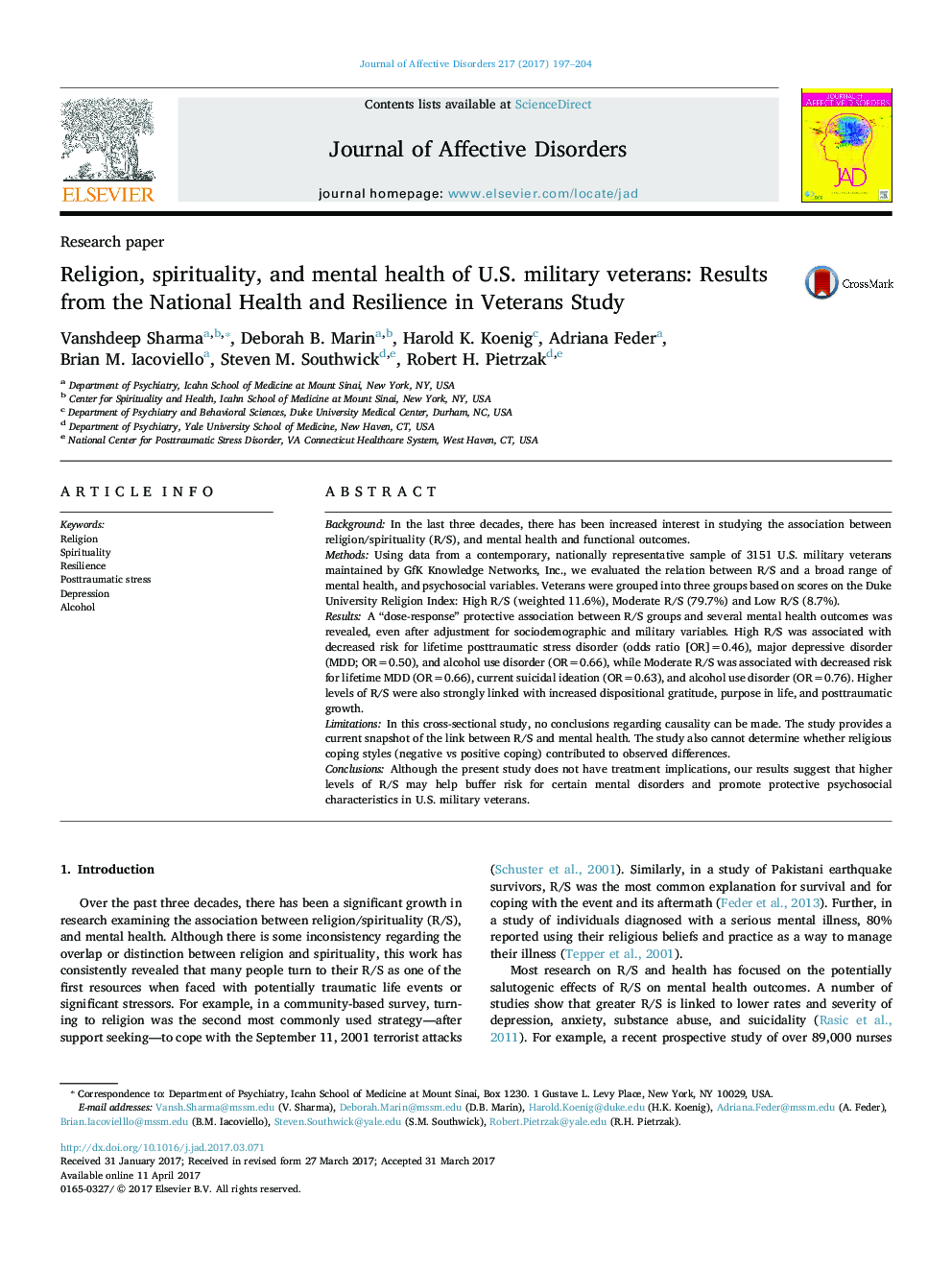| کد مقاله | کد نشریه | سال انتشار | مقاله انگلیسی | نسخه تمام متن |
|---|---|---|---|---|
| 5722201 | 1608108 | 2017 | 8 صفحه PDF | دانلود رایگان |
- Investigated relationship between Religion/Spirituality and mental health outcomes.
- A protective association between R/S groups' mental health outcomes was found.
- High R/S group associated with decreased risk for PTSD, Depression and Alcohol use.
- High R/S also positively linked with dispositional gratitude and purpose in life.
- Moderate R/S associated with decreased lifetime depression and suicidal ideation.
BackgroundIn the last three decades, there has been increased interest in studying the association between religion/spirituality (R/S), and mental health and functional outcomes.MethodsUsing data from a contemporary, nationally representative sample of 3151 U.S. military veterans maintained by GfK Knowledge Networks, Inc., we evaluated the relation between R/S and a broad range of mental health, and psychosocial variables. Veterans were grouped into three groups based on scores on the Duke University Religion Index: High R/S (weighted 11.6%), Moderate R/S (79.7%) and Low R/S (8.7%).ResultsA “dose-response” protective association between R/S groups and several mental health outcomes was revealed, even after adjustment for sociodemographic and military variables. High R/S was associated with decreased risk for lifetime posttraumatic stress disorder (odds ratio [OR]=0.46), major depressive disorder (MDD; OR=0.50), and alcohol use disorder (OR=0.66), while Moderate R/S was associated with decreased risk for lifetime MDD (OR=0.66), current suicidal ideation (OR=0.63), and alcohol use disorder (OR=0.76). Higher levels of R/S were also strongly linked with increased dispositional gratitude, purpose in life, and posttraumatic growth.LimitationsIn this cross-sectional study, no conclusions regarding causality can be made. The study provides a current snapshot of the link between R/S and mental health. The study also cannot determine whether religious coping styles (negative vs positive coping) contributed to observed differences.ConclusionsAlthough the present study does not have treatment implications, our results suggest that higher levels of R/S may help buffer risk for certain mental disorders and promote protective psychosocial characteristics in U.S. military veterans.
Journal: Journal of Affective Disorders - Volume 217, 1 August 2017, Pages 197-204
